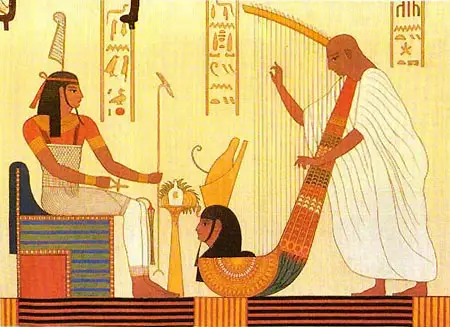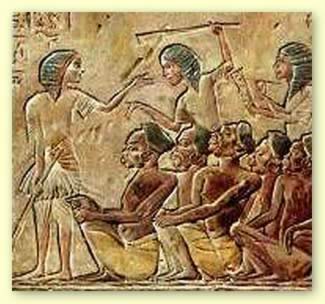Make no delay at all in justice, the law of which you know
Regulation by the vizier Rekhmire
Ancient Egypt had a more or less developed legal system. The laws were at least partially codified. The sources of law are funerary texts, inscriptions, and documents. The pharaoh was the living God and the supreme lawmaker.
This power was sometimes delegated to other officers like the viziers. The Ancient Egyptian Legal System and administrative systems seem not to have been well defined, and so at times, anyone in an authoritative position may have made legal judgments.

There were about eight books that had the Egyptian legal System code. Documentation on prior cases was recorded and retained and these court documents were used as precedent for current cases. Ancient Egyptian Legal System proceedings also have been documented.
Disputes were common among people on issues like inheritance, property rights, marital affairs etc. Murder, attempt to murder, robbery, theft, sexual aggression and the fencing of stolen goods were criminal offenses. Looting of tombs was regarded as the worst crime.
The prevention of crime and apprehension of criminals was the duty of local officials and police forces. It is often opined by some historians that Egyptian punishment was barbaric in nature. Important cases were decided by the Pharaoh himself.
Punishments in Ancient Egyptian Legal System

The punishments resorted to where tortures, restitution of property, banishment, mutilation, forced labor, beatings, fines, confiscation of property, exile, and death.An interesting punishment was the elimination of the name of the guilty from the tombs and burning the guilty alive. The inbuilt concept behind this was that he would lose his hope for eternal life as his body did not undergo the death customs.
The concept of Ma’at was significant in the Ancient Egyptian Legal System framework. Ma’at, the goddess of world order represented truth, balance, and justice in the universe. This concept allowed that everyone, with the exception of slaves, should be viewed as equals under the law, regardless of wealth or social position.
Judging was a standard profession. Judges who had to be impartial commanded respect from the commoners. There were no advocates and the parties of a suit had to present their cases.
A plaintiff was required to bring suit, and if the case was deemed to have validity, the defendant would be ordered to appear before the court. While witnesses were sometimes called, the judge would usually rule on the grounds of documentary evidence and the testimony of each party.
Both oral and written evidence was taken into consideration while judgments were drafted. The confession was the basis for a conviction. Circumstantial evidence, witnesses, and torture were means for achieving this confession. Judgments were sometimes made by divine oracles especially in complicated cases.
